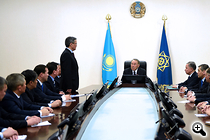 Kazakh National Security Committee Chairman Nurtay Abykayev (standing) receives his marching orders from Kazakh President Nursultan Nazarbayev during a meeting with the country’s intelligence agency on Dec. 25, 2015. Abykayev was replaced by Vladimir Zhumakanov, a career intelligence agent with more than three decades of service. (Photo: Kazakhstan Presidential Press Service)
Kazakh National Security Committee Chairman Nurtay Abykayev (standing) receives his marching orders from Kazakh President Nursultan Nazarbayev during a meeting with the country’s intelligence agency on Dec. 25, 2015. Abykayev was replaced by Vladimir Zhumakanov, a career intelligence agent with more than three decades of service. (Photo: Kazakhstan Presidential Press Service)
Events and opinions
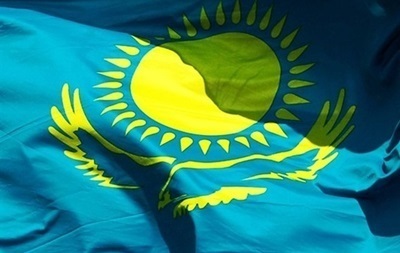 After reading my earlier posts about privatization opportunities in Kazakhstan and the deterrent effect of the FCPA on American investment in that country, and Kazakh listings in the U.S., a reader asked whether it is difficult to do business in Kazakhstan in an FCPA-compliant manner. Unfortunately, I have to say, yes, sometimes."
After reading my earlier posts about privatization opportunities in Kazakhstan and the deterrent effect of the FCPA on American investment in that country, and Kazakh listings in the U.S., a reader asked whether it is difficult to do business in Kazakhstan in an FCPA-compliant manner. Unfortunately, I have to say, yes, sometimes."
 Russian President Vladimir Putin is well-known for being a man who does not do things by half measures.
Russian President Vladimir Putin is well-known for being a man who does not do things by half measures.
 Central Asia is seldom covered in the international press and when it is, it is often condensed politically, geographically, and economically into a single unit — an amalgamation that does the job but doesn’t do it well.
Central Asia is seldom covered in the international press and when it is, it is often condensed politically, geographically, and economically into a single unit — an amalgamation that does the job but doesn’t do it well.
 Opponents and rights groups have accused authorities in Kazakhstan of clamping down on free speech on the internet in order to keep a lid on discontent as falling oil prices push down people's real incomes.
Opponents and rights groups have accused authorities in Kazakhstan of clamping down on free speech on the internet in order to keep a lid on discontent as falling oil prices push down people's real incomes.
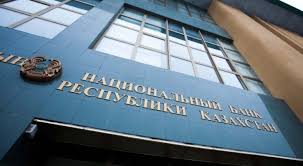 Losing control of an $18 billion pension fund may give the Kazakh central bank the independence it needs to stick with a shift to inflation targeting that’s upended the nation’s currency this year.
Losing control of an $18 billion pension fund may give the Kazakh central bank the independence it needs to stick with a shift to inflation targeting that’s upended the nation’s currency this year.
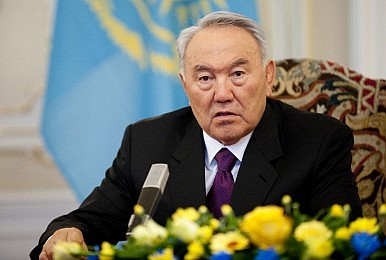 Kazakhstan has issued a diplomatic call for restraint from its allies Russia and Turkey following Ankara’s shooting down of a Russian warplane involved in airstrikes on Syria.
Kazakhstan has issued a diplomatic call for restraint from its allies Russia and Turkey following Ankara’s shooting down of a Russian warplane involved in airstrikes on Syria.
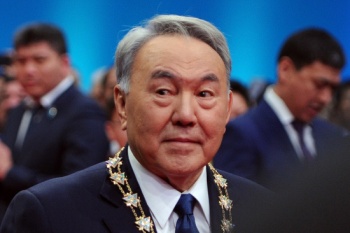 Kazakhstan’s septuagenarian leader Nursultan Nazarbayev has issued a heartfelt call for public servants to step aside after 25 years in the job and make way for fresh blood.
Kazakhstan’s septuagenarian leader Nursultan Nazarbayev has issued a heartfelt call for public servants to step aside after 25 years in the job and make way for fresh blood.
 In late 2011, Vladimir Putin presented his idea for the creation of a “Eurasian Union,” in the north-eastern part of the Euro-Asiatic continent.[1] By that time, he had already been officially nominated, but was not yet re-elected to his third term as President of Russia.
In late 2011, Vladimir Putin presented his idea for the creation of a “Eurasian Union,” in the north-eastern part of the Euro-Asiatic continent.[1] By that time, he had already been officially nominated, but was not yet re-elected to his third term as President of Russia.
 Ethnic Russian man given five-year jail sentence for running a web poll on region's sovereignty.
Ethnic Russian man given five-year jail sentence for running a web poll on region's sovereignty.

How a Chinese company exports the Great Firewall to autocratic regimes
More details
Kazakhstan diverting crude to Russia’s CPC as Azerbaijan deals with tainted oil
More details

